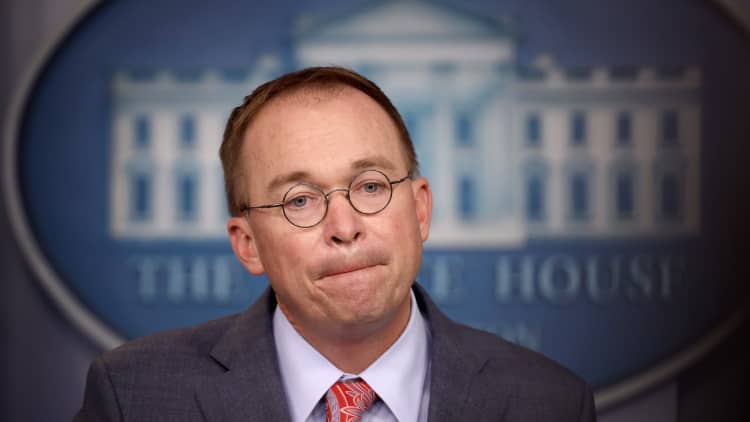President Trump on Friday named Representative Mark Meadows his White House chief of staff, replacing Mick Mulvaney.
Trump said that Mulvaney will become the United States special envoy for Northern Ireland.
Meadows, a Republican from Nouth Carolina, announced in December that he would not seek re-election at the end of his term.
Mulvaney, a former budget-hawk congressman from South Carolina, was under increased scrutiny and criticism for his role in the Trump administration's efforts to have Ukraine announce investigations into former Vice President Joe Biden and his son.
Mulvaney has served as acting chief of staff since December 2018, when retired Marine Gen. John Kelly left the post after a tumultuous tenure reportedly marked by infighting and distrust.
The chief of staff's fortunes seemed to take a turn for the worse after he acknowledged during an October press conference that Trump had sought a quid pro quo when it came to releasing military aid to Ukraine. Trump and other officials had denied seeking a quid pro quo of any kind regarding Ukraine.
Hours after the event, and following intense criticism from Democrats and some Republicans, Mulvaney walked back his claim that Trump wanted Ukraine to help with an investigation regarding a Democratic server and the 2016 presidential election.
In an interview days after the press conference, Mulvaney told Fox News host Chris Wallace that he had not considered resigning after he triggered a fresh Ukraine firestorm for Trump and the White House.
Mulvaney continued in his role for months afterward, all the way through the end of Trump's impeachment trial. The GOP-controlled Senate voted to acquit Trump on two impeachment articles: abuse of power and obstruction of Congress.
Multiple witnesses in the impeachment probe appeared to implicate Mulvaney in an alleged quid pro quo, wherein the White House would only grant a visit to new Ukraine President Volodymyr Zelensky if Ukraine announced investigations into the Bidens and the 2016 presidential election.




